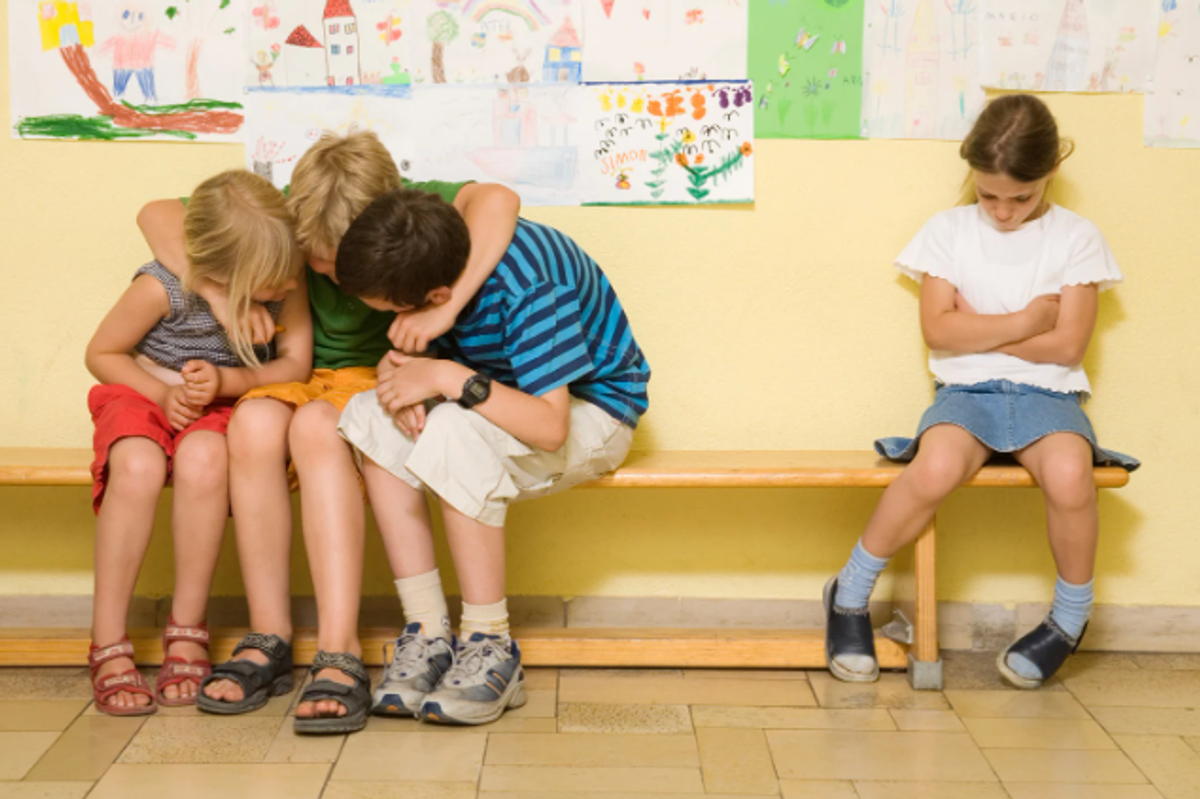Social worker explains why she never helps young daughter make friends, even when she's lonely
"As a parent, that's heartbreaking. As a social worker, I'm not going to do anything about it."

A young girl being excluded at school.
One of the generational stereotypes that Millennials and Gen Zers have had foisted on them by older people is that they lack resilience. The knock isn’t completely unfounded, because many have been raised by lawnmower parents who cut down any obstacle that was in their way as children. So, as adults, they never developed the ability to handle difficult social situations. This can lead to a sense of entitlement and social anxiety.
“Lots of parents want to keep their children safe and feel the need to do all they can to achieve this, even when it is too much on them or their child,” Channing Richmond, a licensed marriage and family therapist in the San Francisco Bay Area, told Parents. That’s why Helen Turner, a social worker and LMFT, doesn’t get involved even when her first-grade daughter is feeling socially isolated at school.

The difference between being a mom and a social worker
“My daughter has been coming home every night of first grade so far, saying that she does not have any friends at school, that no one wants to play with her. And while, as a parent, that's heartbreaking, as a social worker, I'm not gonna do anything about it,” Turner opens her viral video that has been seen over 33,000 times.
“Often times, when parents insert themselves into these kinds of things and attempt to problem solve the situation for their child because they want the problem to be fixed, what they're actually doing is taking the ability for their child to learn what to do in these situations away from their child, which in turn provides a really short term fix for something that will likely be an ongoing, long term, lifelong issue,” she continues.
What is distress tolerance?
Turner says that the ability to endure the feeling of rejection and allow it to prompt someone to take action is called distress tolerance. “Distress tolerance is a person's ability to manage actual or perceived emotional distress,” writes Matthew Tull, PhD, in Verywell Mind. “It also involves making it through an emotional incident without making it worse. People who have low distress tolerance tend to become overwhelmed by stressful situations and may sometimes turn to unhealthy or even destructive ways of coping with these difficult emotions.”
@helennichole3 Real life: School social worker as a mother. #parenthood #parenthack #school #socialwork #childhood
The key in this situation is to find a balance between setting your child up for success and doing things for them. Experts recommend that parents encourage children to make friends by teaching them to share and how to ask their peers to play confidently. Parents can help by teaching them the simple script: “Hi, I’m [child], would you like to play?” or “Hi, I’m [child], would you like to have lunch with me?” Parents can also set a good example by being friendly themselves and demonstrating a healthy social life. However, Turner believes that parents should avoid asking the teacher or other parents to insert their child into a friend group.
Although it may be tough for parents to watch their children feel isolated, it’ll help them form stronger relationships as they age. “If I had not had to learn that skill as a child or earlier in my life, it would feel debilitating to do now at 30 years old,” Turner says. “I don't know about you all, but I want my children to grow up and be 20s, 30s, 40s nnd not having to learn social situations for the first time then.”








 A woman is getting angry at her coworker.via
A woman is getting angry at her coworker.via  A man with tape over his mouth.via
A man with tape over his mouth.via  A husband is angry with his wife. via
A husband is angry with his wife. via 
 Some Boomer grandparents are being called out for "gramnesia".
Some Boomer grandparents are being called out for "gramnesia".
 A woman gets a tattoo.
A woman gets a tattoo. Boy playing on the computer.
Boy playing on the computer.